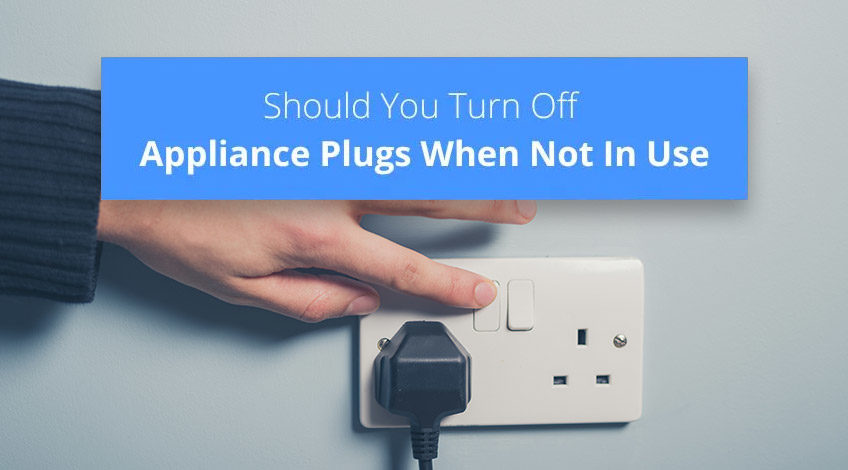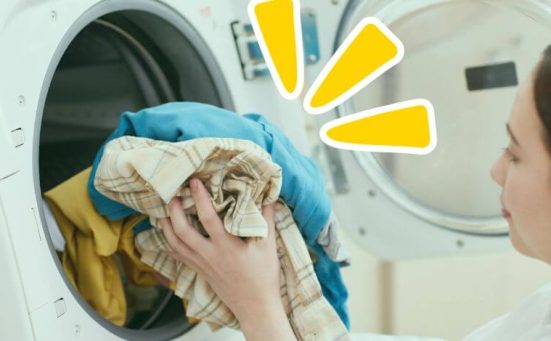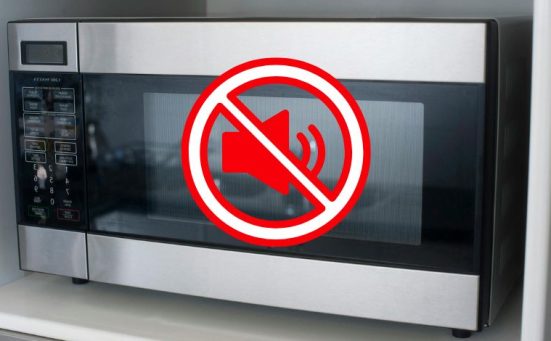
Should You Turn Off Appliance Plugs When Not In Use? (in the UK)
We would always advise you to turn off appliance plugs when they’re not in use. There are a couple of reasons for this, but the main one is that if the plug socket is left on, there is the potential for electricity to enter the appliance. With many modern appliances, this is not a big issue but in the not too distant past, there have been incidents where appliances have caught fire or burnt out when left on standby.
Admittedly these incidents are few and far between, but if the capability is there, it’s best to always assume the worst and play it safe. Especially as manufacturers seem to be cutting production costs wherever they can.
What Happens If An Appliance Is Left Connected To The Power Supply?
If you leave an appliance plugged into the wall socket, even if the appliance is switched off, electricity can still run through the cable if the plug socket is not switched off.
In theory, what should happen is the electricity should run from the wall socket, through the cable, and into the appliances mains filter or suppressor, finally stopping at the appliances on/off switch.
The electricity should only get past the on/off switch once you turn the appliance on. However, it is possible for electricity to to get to the main printed circuit board (PCB), door lock or control panel. This can, of course, cause fires and other issues.
Does Leaving A Switch On Use Electricity?
In many cases the answer to this question is yes, leaving the wall socket switched on does use electricity on a surprising number of electrical appliances. There is even a trade name for this phenomenon which is “a phantom load” or “vampire energy”.
Phantom Load
A phantom load refers to any electronic device or appliance which consumes electricity when it is turned off but still connected to the mains via a wall socket. We all have many electrical devices which we just put on standby when we finish using them. But many of them are wasting electricity in our homes at an alarming rate.
According to the US Berkeley Lab[1] leaving an appliance on standby adds up to using an extra 5-10% of electricity and can cost upwards of £200 per year extra on our energy bills. Not to mention adding to the world’s carbon footprint.
Researchers have spent 20 years studying the amounts of electricity used when appliances have been left on standby. 20 years back, appliances on standby used around 1-3w. This has been reduced to around 0.5w nowadays, however, far more appliances are available which can be left on standby.
Which means although the power usage on standby is significantly less, the number of so-called essential appliances have increased. Making the overall total energy consumption to be around the same amount.
What Appliances Use A Phantom Load?
It might surprise you to learn the amount of appliances which use a phantom load. All of the following can and do use electricity when they’re not actually being used but are still plugged in;
- TVs
- DVD Players
- Video Game Consoles
- Cable Boxes
- Satellite Boxes
- Stereo Systems
- Desktop Computers
- Monitors
- Printers
- Lamps
- Microwaves
- Washing Machines
- Tumble Dryers
- Dishwashers
- Coffee Machines
- Smart Speakers
- Toasters
- Mobile Phone Chargers
- MP3 Player Chargers
Ways To Save Energy In Your Home
If you would like to save energy and stop the phantom load element from adding to your energy bill consider the following;
- Place all of the plugs connected to one application on one extension cable wherever possible. For instance, plug the desktop PC, printer and monitor into one extension cable. Then switch the extension plug socket off when not in use.
- Unplug all lamps etc when not in use.
- Unplug phone chargers, battery chargers etc when not in use.
- If you are not going to use your PC for the next hour or so, turn it off and remove the plug from the socket.
And remember the only way to be sure that an appliance isn’t using energy is to remove the plug from the wall socket. Never assume the power is off just because the screen or display screen is blank. The appliance could still be on standby which means it will still be consuming some power.
SEE ALSO: Kitchen Socket Height Above Worktop (must-know regulations)
Frequently Asked Questions
You should always unplug appliances when not in use. Not only is this safer, it also ensures that they are not using any power at all. Many appliances will still be using some power even when on standby.
Unused plug sockets do not use electricity when left on. For a plug socket to use electricity, it has to have something plugged into it.
You should unplug your washer and dryer when they’re not in use. This will ensure they are safe and will not cause a fire as well as ensuring you are not using what is known as a phantom load. This is where an appliance is on standby and therefore still using a small amount of power.
You should unplug the microwave when it is not in use to save energy. In fact, you should unplug all electrical appliances that are not in use to maintain safety and save on electricity.
Also, follow us on Pinterest ...



